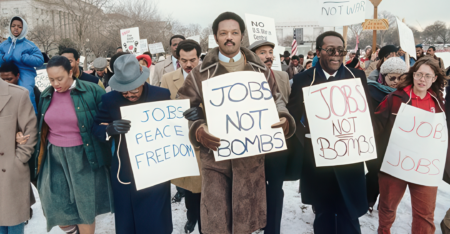By Lauren Burke
The six-decade career of legendary artist Jimmy Cliff, who was born in the Somerton District of Jamaica, was one of the most influential in reggae history and a global ambassador for Jamaican culture. Cliff was raised in a rural farming community and began writing songs as a child. His family moved to Kingston as a teenager to pursue his music. What followed over the next thirty years was legendary.
Cliff’s wife, Latifa Chambers, wrote on Instagram in the early morning hours of November 24 that, “It’s with profound sadness that I share that my husband, Jimmy Cliff, has crossed over due to a seizure followed by pneumonia. I am thankful for his family, friends, fellow artists, and coworkers who have shared his journey with him. To all his fans around the world, please know that your support was his strength throughout his whole career. He really appreciated each and every fan for their love.” She then thanked Cliff’s doctors and medical staff.
Jimmy Cliff and Bob Marley shared a parallel rise within Jamaica’s dynamic 1960s music scene, each shaping the emerging sound of reggae while carving distinct artistic identities. The two maintained a relationship marked by mutual respect and an understanding of each other’s cultural impact. Cliff, who achieved international recognition earlier, particularly through “The Harder They Come,” helped open global doors that Marley would later rocket through as he became the reggae genre’s most iconic figure. Marley would, in turn, push the music’s political aspects to new heights, which Cliff openly admired. Their relationship was defined less by collaboration and more by a shared mission: Elevating Jamaican music onto the world stage and using it as a vehicle for storytelling, struggle, and liberation.
Jimmy Cliff achieved his breakthrough moments with a series of socially conscious songs in the 1960s. They included “Many Rivers to Cross,” “You Can Get It If You Really Want,” and “The Harder They Come.” That song became part of a movie soundtrack that would introduce reggae to international audiences and build Cliff’s image as a pioneer of the genre. Cliff would become second only to Bob Marley in shaping reggae’s global reach.
Over the decades, Cliff continued to change musically and fuse reggae with rock, pop, and world music influences. But he always maintained sharp political and emotional clarity in his songwriting. Jimmy Cliff’s musical collaborations included work with the Rolling Stones, Elvis Costello, and Annie Lennox.
Cliff’s contributions earned him induction into the Rock & Roll Hall of Fame in 2010, making him one of the few reggae artists to be inducted into the Hall. Known for his charismatic stage presence and unwavering commitment to political messages of resilience, Jimmy Cliff will remain an enduring icon whose music has spoken across generations from Jamaica and beyond.
Jimmy Cliff is survived by his children, Lilty Cliff, Aken Cliff, and Nabiyah Be.







